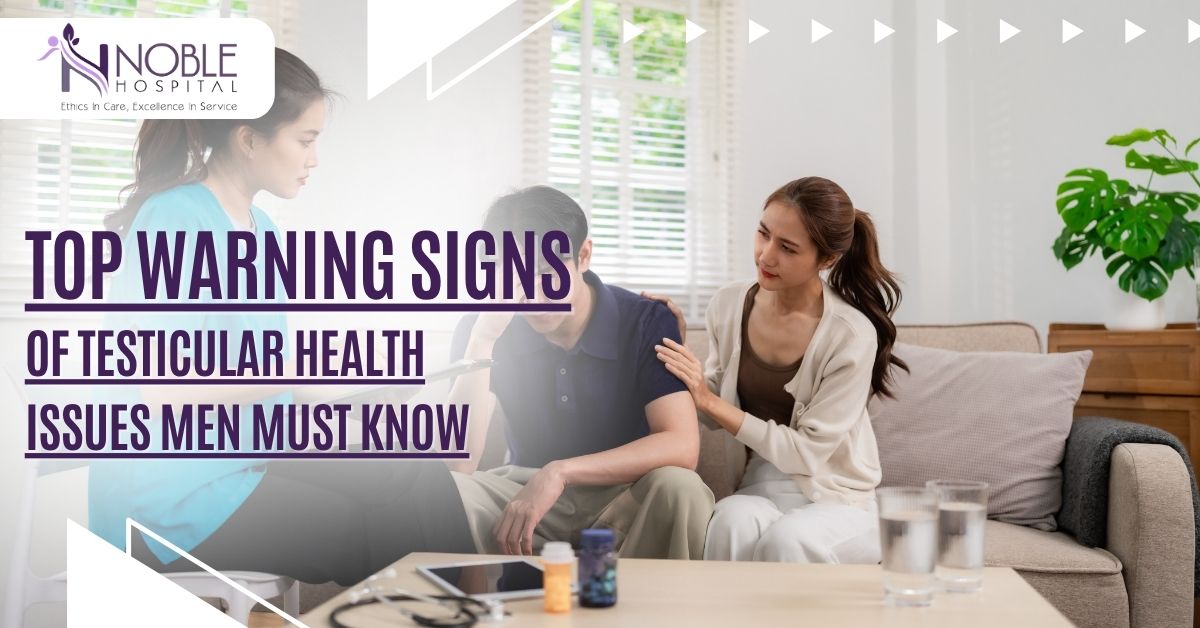
Top Warning Signs of Testicular Health Issues Men Must Know
When it comes to men’s health, testicular health is often a topic that doesn’t get the attention it deserves. The truth is, staying aware of what’s happening “down there” can quite literally be life-saving.
Let’s face it—talking about testicles might not be your go-to conversation starter. But just like checking your blood pressure or keeping tabs on your cholesterol, paying attention to what’s normal (and what’s not) in your testicular area is key to early detection of potential health problems.
Why Testicular Health Matters
Your testicles play a huge role in your overall well-being. Not only do they produce sperm, but they also produce testosterone—the hormone responsible for everything from muscle growth and bone strength to sex drive and mood regulation.
When something goes wrong with your testicular health, it can affect much more than just reproduction. That’s why it’s important to notice the signs early and talk to a doctor if anything feels off.
Common Testicular Health Problems
Before diving into the warning signs, it helps to know what kind of issues might affect the testicles. These can include:
- Testicular cancer
- Epididymitis (inflammation of the tube at the back of the testicle)
- Hydrocele (fluid buildup around the testicle)
- Varicocele (enlarged veins within the scrotum)
- Torsion (twisting of the testicle, cutting off blood supply—a medical emergency!)
Now let’s talk about the warning signs you should never ignore.
Top Warning Signs of Testicular Problems Men Should Not Ignore
1. A lump or swelling in the testicle
This is one of the most well-known symptoms of testicular cancer. But here’s the thing—not all lumps are cancerous. Some might be cysts or other benign issues. However, any lump or change in size or texture deserves a check-up.
If you’re doing regular self-examinations (more on that later), you’ll be able to notice these changes sooner rather than later.
2. Pain or discomfort
Persistent pain, tenderness, or even a dull ache in one or both testicles could signal several different conditions—from infections to a twisted testicle. While the pain might come and go, it’s not something you should brush off.
If the pain is sudden and intense, it could be testicular torsion—a condition that requires emergency medical attention to save the testicle.
3. Feeling of heaviness
Do your testicles feel unusually heavy? That sensation could be due to a varicocele or fluid buildup like a hydrocele. Sometimes, it could also be one of the earliest signs of testicular cancer.
If you’re walking around with a constant dragging feeling in your scrotum, don’t wait—get it checked.
4. Swelling or enlargement of the testicle
Just like a lump, any unexplained growth or swelling requires attention. It’s easy to overlook mild swelling—especially if it’s not painful—but even painless enlargement can be a sign of something serious.
5. Changes in the way your testicle feels
You don’t need to be an expert to notice that something doesn’t feel right. Maybe one testicle feels firmer than the other, or you notice changes in texture. When you do self-exams regularly, you know what’s normal for you. Trust your instincts—if something feels different, get it checked.
6. Fluid buildup
A hydrocele, as mentioned earlier, is a fluid-filled sac surrounding your testicle. It often causes painless swelling—but any unusual swelling is worth bringing to your doctor’s attention.
In some cases, the cause may not be serious, but only a proper examination can rule out more dangerous conditions.
7. Enlargement of breast tissue
Yes, really—some testicular tumors can alter hormone levels and lead to breast tissue growth (gynecomastia) in men.
If you notice swelling, tenderness, or growth in your chest area, don’t dismiss it as weight gain or hormonal fluctuation. It could be signaling something bigger happening in your testicles.
How to Perform a Self-Exam
The best way to notice these warning signs early is to do a monthly testicular self-exam. Here’s a simple step-by-step guide:
- Step 1: Do it after a warm shower when your scrotal skin is relaxed.
- Step 2: Use both hands to gently roll each testicle between your fingers and thumbs.
- Step 3: Feel for lumps, swelling, or any hard areas.
- Step 4: Compare both testicles—noticing any changes in size, shape, or texture.
If you notice anything suspicious, don’t panic—but don’t ignore it either. Book an appointment with a healthcare provider.
When to See a Doctor
Any of the following signs mean it’s time to call your doctor:
- Pain or discomfort that doesn’t go away
- A lump that wasn’t there before
- Swelling, enlargement, or firmness you haven’t noticed before
- Unusual changes in how your testicles look or feel
Don’t let embarrassment stop you from seeking help. Doctors see and treat reproductive health issues all the time. Your health is worth the conversation.
Take Control of Your Testicular Health
Think of checking your testicles as another part of your regular health routine—like brushing your teeth or going to the gym. The more familiar you are with what’s normal, the quicker you’ll know when something isn’t.
Getting in front of an issue early can make all the difference. Whether it’s a harmless cyst or something more serious like testicular cancer, early detection often means easier treatment and better outcomes.
Final Thoughts
Your testicular health might not be a hot topic at parties, but it’s something every man should take seriously. By learning to recognize the warning signs and paying attention to your body, you’re doing your part to stay healthy—not just for yourself, but for the people who count on you.
So here’s your takeaway: Take a few minutes each month to check in with your body. Know what’s normal. Speak up when something feels off. And don’t be afraid to reach out to a healthcare provider—it might just save your life.
Remember, being proactive about your health is one of the manliest things you can do.

Leave a Reply